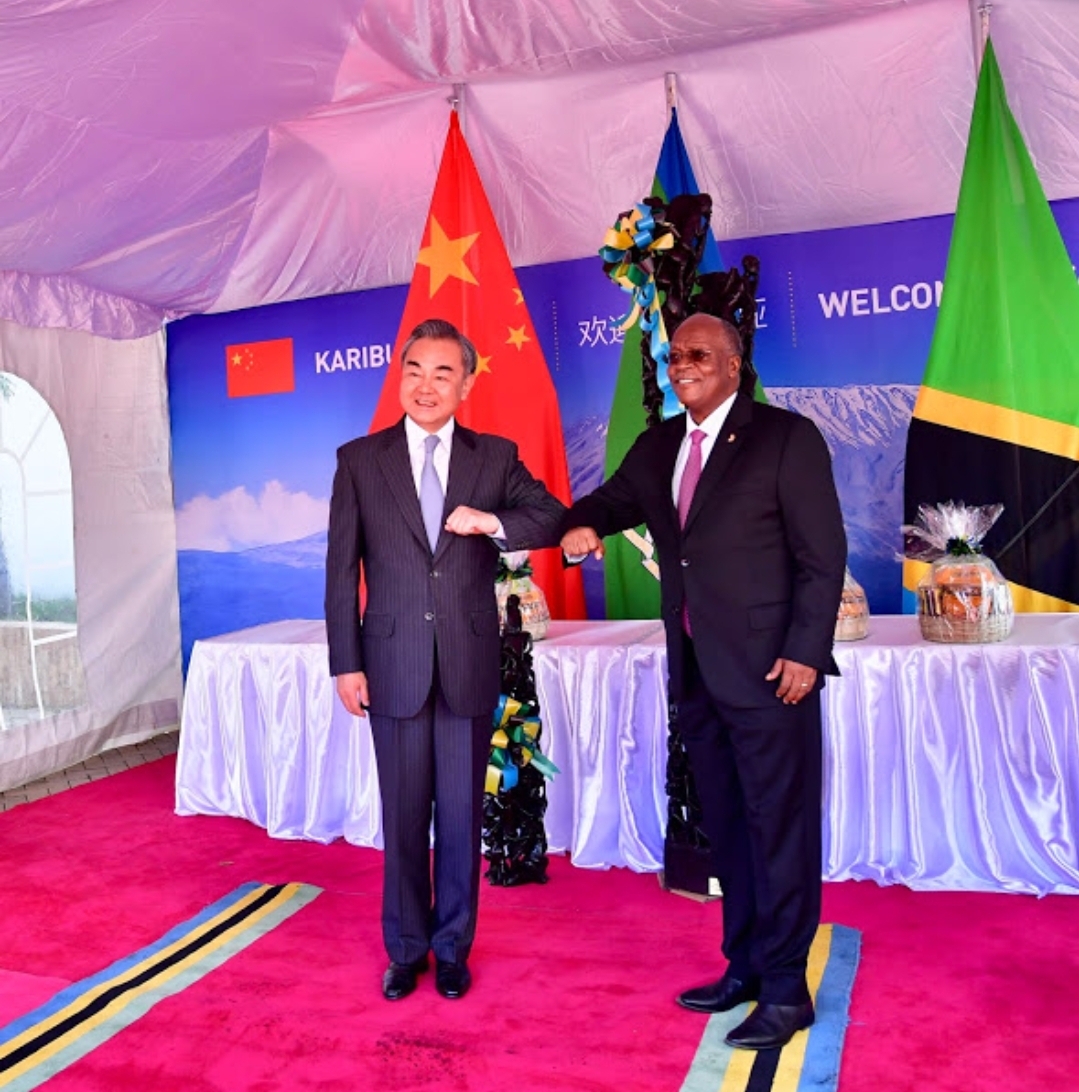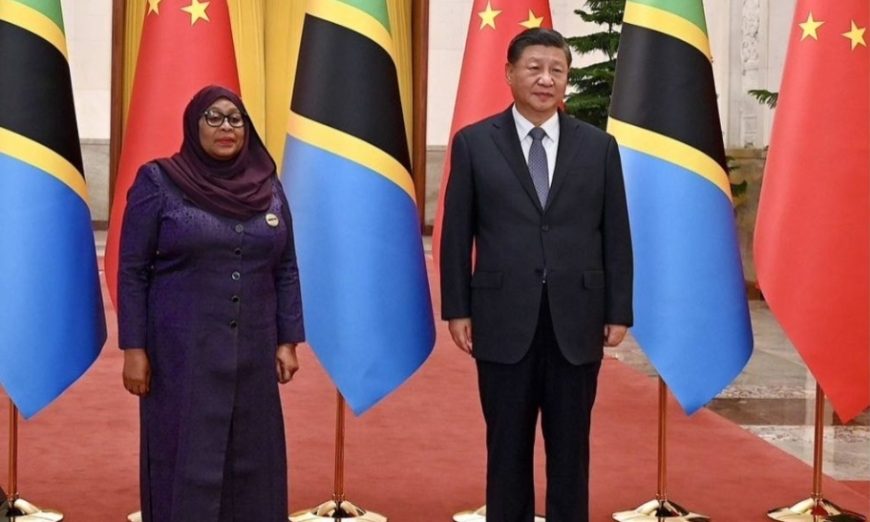IN his public lecture to the London School of Economics, Centre for the Study of Global Governance, 27 years ago, Tanzania’s founding president Julius Nyerere, said: “Most of Africa attracts only missionaries and mercenaries.”
The same is found in his booklet, “Africa today and tomorrow,” published in 1997 by the Mwalimu Nyerere Foundation.
That was part of his eternal wisdom on foreign direct investments in Africa. It was true then, and it is even truer today with the increasingly enormous Chinese investments and influence on the continent. As expected, between the two categories – missionaries and mercenaries – China falls in neither the former nor the latter, but it appears in the form of the “merchants of capital.”
As much as China has never been associated with the classical colonisation of Africa, its increasing influence on the continent is worrying. But it is not completely unsolicited.
That is why in an attempt to analyse the current relationship between China and Africa, Hema Narang of Delhi University has coined the term “infrastructure diplomacy.”
It helps to explain the source of China’s continued interest, and its influence on Africa, as a result of major infrastructure projects implemented all over the continent.
She insists: “China’s strategy of engaging in prestige project diplomacy, particularly in Africa, has been notable since the construction of the African Union headquarters in 2012. These grand structures serve as symbolic showcases of China’s capabilities, positioning the country as a facilitator of modernisation and progress. These projects play a crucial role in China’s pursuit of international prestige, functioning as powerful tools to influence global perceptions and cultivate a positive image.”
Of course, these business and diplomatic ties date as far back as 60 years ago. The mega projects have gradually increased and become a lucrative enticement that has helped to maintain Africa’s dependency on China.
As of 2020, the top 12 African countries that were enjoying the lion’s share of China’s foreign direct investments – as per statistics by the London School of Economics – included South Africa, the Democratic Republic of Congo, Zambia, Ethiopia, Angola, Nigeria, Kenya, Zimbabwe, Algeria, Ghana, Tanzania, and Mozambique.

Clearly, China’s influence on Africa is intertwined with vested interests in resources, focusing mainly on projects in infrastructure, natural resource extraction, agriculture, and other economic development initiatives.
One more fact that cannot be overlooked is that elsewhere, the more they invest massively and indiscriminately, the more they nurture the undemocratic governments in power and continue to fuel the machinery of oppression. Vivid examples abound.
In 2023, Africa became China’s largest recipient of financial engagement, worth US$21.7 billion. Next to Africa were Middle Eastern countries (US$15.8 billion).
In Angola, for instance, China has invested heavily in oil and infrastructure sectors, while in Nigeria it has invested in infrastructure. Likewise, China is known to have played a significant role in financing infrastructure projects in Ethiopia, such as the Addis Ababa-Djibouti Railway.
In Kenya, China’s focus was on infrastructure, new energy, digital economy, and other fields, while in South Africa it has investments in mining and infrastructure. But Kenyan media report that in September 2023, the country owed China $5.94 billion (Ksh906 billion).
Tanzania is not spared. According to the China Africa Research Initiative of John Hopkins School of Advanced International Studies, as 2015 drew to its end, China had 140 companies with 159 registered investment projects targeting Tanzania.
By October 2022, the number of Chinese projects registered with the Tanzania Investment Centre (TIC) had reached 1,098 worth USD9.6 billion in the Tanganyika part of the country. In Zanzibar, there were 15 projects worth USD 202.2 million.
Current statistics from the Tanzania Investment Centre (TIC) need a careful observation. China tops the list of foreign investors, with 30 percent of all foreign direct investments (FDI) in Tanzania. In second place lies the United Kingdom with a 20 percent FDI share. Canada and Mauritius come third and fourth with 15 percent and 10 percent respectively. The Netherlands is the fifth largest foreign investor in Tanzania, accounting for 5% of FDI inflows.
Here comes the question: Is China Tanzania’s friend, investor, or neo-colonist? A retired senior government official anonymously responds: “Africa’s future is getting bleaker as Africans enjoy the trimmings of top public and political positions, including the presidency, while foreigners enjoy and manipulate our economies. I have lost faith and interest in Africa, especially Tanzania, which used to be the beacon of hope.”
Some observers have a view that the ‘Chinese Dragon’ has changed in its relationship vis a vis Tanzania, because the China of today is a full-blown capitalist state; even more capitalist than the capitalists themselves. At the same time, Tanzania behaves as a capitalist of inferior order, feeding on the crumbs from its own resources.
This is the driving force behind the ‘Belt and Road Initiative,’ – otherwise known as “One Belt, One Road,” or “the New Silk Road,” – an infrastructure and economic development project by China to build extensive trade routes across Eurasia in the form of high-speed rail and highways.

What is Tanzania to China?
Historically, Tanzania and China developed a mutual relationship since the early 1960s. It is on record that a few months before the Tanganyika-Zanzibar union that formed Tanzania, China Prime Minister Zhou Enlai, paid a courtesy call to Tanganyika.
In return, Tanzania’s president Julius Nyerere visited China in 1968 to cement strong diplomatic ties that would later result in Tanzania’s role in mobilising international support for the People’s Republic of China (communist) membership at the UN – replacing the Republic of China (Taiwan). This support was later extended to cover the Chinese bid for a permanent seat at the Security Council.
It is worth noting that while other nations had been hesitant in recognising the union between Tanganyika and Zanzibar in 1964, China had acted quickly and boldly in favour of this young nation.
It was not an accident, then, that after President Nyerere first trip to China, he became a fan of Chairman Mao Zedong’s policies and dress code, which he copied and consequently influenced other Tanzanians, particularly politicians, to emulate.
It was under this background that China built the 1860 km Tanzania Zambia Railway (TAZARA) from Dar es Salaam to (Kapiri Mposhi) Lusaka, for which Nyerere had apparently failed to attract funding from Western countries. The political relationship between the Communist Party of China (CPC) and Tanganyika African National Union (TANU) the precursor of Chama Cha Mapinduzi (CCM) started during these early days.
Five decades later, China continues to build railways, roads, bridges, libraries, and so on, in Tanzania, but the terms and conditions have changed in what some observers call the “Kausha Damu’ contracts (Blood sucking), reflecting the triumph of the anti-Mao capitalism envisaged by Deng Xiaoping.
To our many politicians, particularly in the ruling class, China is a trusted friend. They are inclined to go by the rhetoric that Chinese investments come with no strings attached regarding human rights and respect for the rule of law!
From Nyerere to Samia, China and Tanzania have maintained relationships that have constantly acquired political, educational, diplomatic, military, business, and infrastructural translations.
In recent times, Chinese Foreign Minister Wang Yi became President John Magufuli’s last state guest to tour Tanzania, and flew to Magufuli’s home, Chato, in the second week of January 2021. On 9th January 2021, Minister Yi said: “Tanzania is a staunch friend of China in Africa and holds a special and important place in China’s diplomatic history.”
Samia Suluhu Hassan took power as Magufuli’s successor in March 2021, but on her first state visit out of Africa, in the first week of November 2022, she flew to China.
“After Samia’s visit, the official communique was written. What is worrying is the secrecy and opaque nature of the China-Tanzania investment agreements. There is no transparency at all. And the wording doesn’t suggest if the Tanzanian counterparts were involved in the drafting of the communique,” says an anonymous Tanzanian lawyer working for a UN body.
Can we dig deeper? Yes we can!










